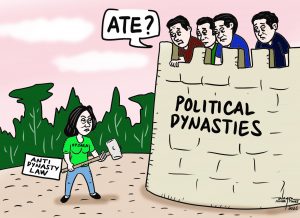Dominating the headlines the past week were the virus that hit hog raisers and the virus that the country thought it had erased more than two decades ago.
The African swine fever virus that has hit some parts of Luzon has caused hog raisers in the region to go on a full information drive about the virus.
The city, through Executive Order No. 37, created a task force to protect the entry of sick swine which has already caused so much misery to hog raisers in Rizal and other towns up north. The legislative body also passed a resolution last week temporarily banning the entry of hog and pork products, thus, the three entry points of the city, Barangay Lasang in the north, Barangay Sirawan in the south, and Barangay Lacson in the south-west. The station is manned by the Task Force Davao and the City Veterinarian’s Office, operating 24/7.
The farmers do not need this kind of catastrophe. Most of the small hog raisers are looking at the expected increase in the demand of pork as December is fast approaching. It would be devastating if ASF reaches our shores.
The polio virus is another matter of great concern, especially affecting children 5 years old and younger. The country has been declared as polio-free since 2000, according to the Department of Health, with the last case reported in 1993. What happened?
The DoH said that the recent Dengvaxia vaccine scare has affected vaccination of children. DoH has also reported that the third dose of the Oral Polio Vaccine has remained below the 95% target in recent years, which makes the country at risk for polio outbreaks.
Along with other childhood diseases, polio can be addressed by immunization. Health officials said polio has no cure. Infants are inoculated with Inactivated Polio Vaccine (IPV) in addition with three doses of Oral Polio Vaccine (OPV) to eliminate all forms of polio disease.
The move to include the barangay officials in educating parents who are now reticent in having their children immunized is a positive step in eradicating the virus – again.



